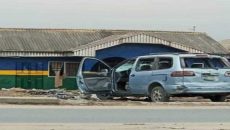Sunny Areh, seasoned journalist and Senior Special Assistant to the Governor (Resource Centre), says in spite of the initial security challenges, the state has moved on to record remarkable achievements
Democracy in Delta State in the last 15 years, how would you describe the journey as somebody who had been part of the two administrations?
Well, the last 15 years, the democratic experience has been awesome; meaning that coming from the military era to a democratic system, it was a learning stage because of the kind of lessons we had. When we took over democratic process, the learning period was short, so to say. In the last 15 years, it has been a great experience. The state has experienced some progress in terms of development and the only thing that most likely affected our development level was the Warri crisis – the inter-communal clashes that we had in the early stage of the Ibori administration. But all that has been surmounted and we are moving ahead.
So how would you describe the Ibori years?
The Ibori years were foundational. His Excellency, James Ibori, laid a solid foundation in terms of widespread development across the state. In the area of development, he recorded remarkable achievements. If you look at infrastructure development, Ibori it was, who, for the first time in the history of the Ijaws, linked the riverine areas to the national grid for power supply, and that one was a major achievement. And significantly too, we talk about the Bomadi Bridge; Ibori it was that linked these riverine areas by road through the navigational bridge that he built in Bomadi that was commissioned by former President Olusegun Obasanjo. And of course, that kind of development he brought into these areas opened up the areas that were inaccessible before his time.
That was for the Ijaw. And two, there was the one they call the Omadina Bridge. Although that bridge was started by the then OMPADEC, Ibori completed it to link the Itsekiris to the riverine areas. Again, that is development in the riverine areas. And when you come to the upland, Ibori touched every village and hamlet throughout the state with one project or another. But what he was really known for was the establishment of access roads in the rural areas. In Delta North, there was this day I just took a drive trying to get to my village, I was impressed with what I saw. What happened to Ibori then was that he was under-reported, and the blame was not on his media people. The blame was his own because he was always insisting that he would not want to spend, say N10 million constructing a project, and then spend another N10 million flagging it off. His belief then was that those who are enjoying the facilities will appreciate it more than others.
Like I said, the earlier years of his tenure was characterised by crisis, crisis of inter-communal nature, especially in the Warri axis. So, that one hampered and slowed down his pace of work. Even though he surmounted it, we cannot rule it out that it was a critical issue.
Ibori championed the agitation for resource control. Looking back, how do you see that struggle?
Yes, it is true he spearheaded it. He believed that look, as producers of the wealth of the country, the communities that produce the wealth should have a say on how the wealth is managed. Resource control, to him, was giving to the communities what they deserve; giving to the communities their fair share. He said look, my people are producing this; they are suffering this deprivation through exploration and exploitation of oil. If the people control their resources, they will know how to resolve their ecological challenges. He championed the cause with his brother governor then, Dieprieye Alamieseigha of Bayelsa State. Whether we like it or not, he achieved something out of his agitation for resource control. Today now, at the national conference, what is the issue they are discussing? Thirteen per cent derivation; somebody has to start something and so it is to his credit and his team that they championed this agitation. Even tied to this is the offshore and onshore dichotomy – that was resolved in his favour by the Supreme Court. That is why a state like Akwa Ibom is the richest state today. Ibori championed that. Today, at the national conference, resource control is being hotly debated but I know that at the end of the day, they cannot go below the 13 per cent that the oil producing states are enjoying presently. And I dare say there is no way the agitation will stop until we have full resource control, thanks to James Ibori.
Yes, from Ibori to Uduaghan; how has the incumbent governor built on the lofty achievements of his predecessor?
One, you see, if I am going to talk about this administration, we will talk about the tangible and the intangible. For some of us, the intangibles interest us more, like the health sector, where we are delivering women free of charge. We are providing free health care to children from 0- 5 years. You see, for the health sector, you needed to have experienced what I am saying to really get the feel of it, especially the Caesarean section. We were losing a lot of women because they couldn’t afford to pay for this operation. Some of them return home to go to quack doctors and in the process, they lose their lives. But right now, all operations are free. There is the infant mortality rate report right now in which the World Health Organization, WHO, rated Delta State as the first because infant mortality rate has drastically reduced, which is wonderful.
Now, part of the intangible too, is the scholarship scheme, because these are the things you don’t see, but the effects are there. I was just reading something online about a Deltan, one Marilynn Akpapuna, a beneficiary of our First Class Scholarship programme. She was on the same podium with Michelle Obama as the best graduating student of the Dillard University, New Orleans, United States. This is great because the governor said, look, if we have these bright students who can excel, they should be awarded N5 million as their grant every year. The scholarship is not just that. There is also the Students’ Assistance Scheme; it is not just run-of-the-mill scheme that is for every other student. This is part of our human capital development. Someday, these persons would return to the state and be part of the people who would drive the economy of the state – Delta Beyond Oil. Those are the kind of intangibles I am talking about.
Intangible two – Poverty Alleviation Programme. Unfortunately, it is only our women that are more interested in embracing the programme. But right now, as at the last count, over 3,000 persons have benefitted from this, and they are paying back. So those are the intangibles. So when you see a vulcanizer by the roadside who is doing well, it could part of the poverty alleviation scheme.
But when you talk about physical development, we have built an airport; another one is ongoing at Osubi. As at the last count, I think we have done several kilometres of roads spread across the state while some mega road projects are on-going. What people should understand is that Delta State is a multi-city state. It is not like other states where you see the governor developing just the state capital and he is being hailed. We have Asaba, Warri, Effurun, Ughelli, Ozoro, Sapele, Abraka, Aboh, Kwale; all these are cities on their own that need development. And of course, they are getting the attention they needed. Just imagine if all these towns were not cities, and every effort is concentrated in Asaba as the capital city. This place would have been paved with gold but our resources have to be spread across all these places for equal development.
For someone who had the opportunity of working closely with the two governors, how would you describe their personalities and style of governance?
That would be a bit difficult for me to answer. Personality and working style – no two people are the same. But there is a common trend that runs between them. And that is, they are very lenient, very accommodating. Like I was telling you about His Excellency, Chief James Ibori; these are people who feel hurt if you are hurt. These are people, sometimes, they will tell you it is by the grace of God that I am governor, but I am human. They were people of humble background which I believe has an influence on their style of governance. These are people who really feel what the subjects are going through. So, by the grace of God, the governors got to where they were and they will always feel for the other people. For example, His Excellency read something on our forum about a girl who needed help because she had liver problem. He called to ask what we were doing about her case. He has read it, but he has a subtle way of trying to tell me I have read this thing, I am interested. It is just for us to sit down and say this is the amount the lady would need for the kidney transplant. Last year, from the same forum too, there was the case of another boy he read about and he said come, take; let the boy go. So rating the two of them, like I said, is difficult. But that common trait, they have. They are human, and they are humane.
Follow Us on Social Media




 WhatsApp us
WhatsApp us